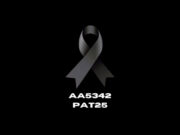 Ace It is a series provided by Professional Pilots of Tomorrow (PPOT) that highlights various tips and advice for helping you succeed in interviews and on checkrides. The series covers everything from common suggestions to lesser-known ideas. If you have some advice you’d like to share with fellow pilots, send an email to cameron.shulak@theppot.org
Ace It is a series provided by Professional Pilots of Tomorrow (PPOT) that highlights various tips and advice for helping you succeed in interviews and on checkrides. The series covers everything from common suggestions to lesser-known ideas. If you have some advice you’d like to share with fellow pilots, send an email to cameron.shulak@theppot.org
. Appropriate credit is always given for submissions.
Take a second to imagine that you’re in a class in college, and your professor announces that there will be an exam next time the class meets. However, your professor doesn’t tell you what content will be on the exam, or what materials to study. All you know is the subject of the class, and what you’ve learned so far. That seems like a pretty tough situation, right? Well unfortunately, this is the situation many pilots find themselves in when preparing for a checkride. They know they must take a checkride, and that it might be for an Instrument Rating or Commercial Certificate, but that’s it. They don’t know what exactly they’re expected to know, and where to find information.
Luckily, there’s a simple solution to this problem, and the FAA provides it. Even better, the FAA publishes this information free of charge and keeps it readily accessible on their website. The Airman Certification Standards (ACS), formerly known as the Practical Test Standards (PTS), lay out all the standards for successfully completing a checkride. The ACS is the new golden book for knowing what to expect on the big day. (Astute fliers might know the ATP and Flight Instructor PTS, plus a few other non-airplane tests, haven’t yet converted to ACS. They’re currently being developed so they will be coming.)
The ACS are a great improvement on the PTS, because now they are written using more “plain-English” (less like reading FARs), give practical and attainable standards, and are constantly being updated and evaluated. Everything a pilot is expected to know, and every maneuver that must be performed, is all found in the ACS. Am I going to have to perform a steep turn on my commercial checkride? If so, what are the standards? What do I need to know about weather for my instrument checkride? These questions can be answered by referencing the appropriate ACS.
If you are a flight student, make sure your flight instructor introduces the ACS early in your training for a certificate or rating. If you are a flight instructor, ensure that you familiarize your students with the ACS, and constantly reference them during training. Doing so ensures that there are no surprises come checkride day. By the time a pilot is endorsed for their checkride, they should have all the knowledge specified by the ACS and be able to complete all the required maneuvers to the standards it specifies. If this is the case, the oral exam and checkride should be a breeze.

In addition to supplying the standards for knowledge and performance, the ACS also provide references of where to find information. Listed by each standard is a reference to an FAA publication that contains a wealth of information on the subject. If you’re feeling deficient in an area, or just want to brush up on a subject, the reference will lead you to the right place. Note that the FAA uses alphanumeric identifiers to reference their publications. For example, the Pilot’s Handbook of Aeronautical Knowledge goes by FAA-H-8083-25B.
The Airman Certification Standards, along with the FAA textbooks and handbooks, can all be found on the FAA’s website at https://www.faa.gov. If you’re a student, and if you haven’t already, look at the ACS for the course you’re currently taking. If you’re a flight instructor, now is an ideal time to review the ACS to make sure you’re keeping your students up to standards. Staying up to date with FAA publications is our responsibility as certificated pilots. Even if you’re not currently training or instructing, it’s still a good idea to know what the ACS are all about.








































































